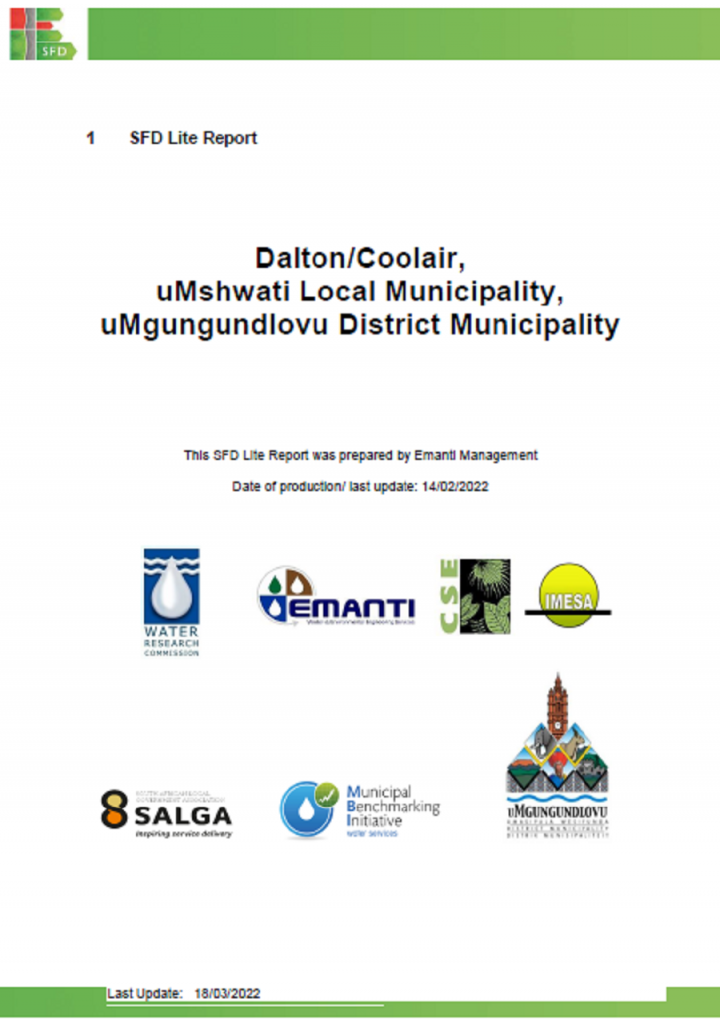SFD (Lite) Report – Dalton/Coolair, uMshwati Local Municipality, uMgungundlovu District Municipality Emanti and CSE India (2022)
The uMshwathi Local Municipality is the largest of the six smaller local municipalities in the uMgungundlovu District Municipality. The local municipality is in an area that was largely under the control of tribal authorities until very recently. There are towns, however, that were built by German immigrants some 150 years ago. The land area of uMshwati LM is approximately 1,866 square kilometres (km2) with a population size of 111,645 according to 2016 Stats SA Community Survey (Municipalities of South Africa, 2021). This is the population for the local municipality, not Dalton/Coolair area. Agricultural production (timber and sugarcane) and rural-residential settlements are dominant land uses with the local municipality. The local municipality consists of 4 main urban centres (UMshwathi Local Municipality, 2018):
o New Hanover which serves as the Administrative Hub of the local municipality.
o Wartburg which serves as the main commercial centre.
o Dalton which is the main Service Industrial Hub.
o Cool Air.
Most of Dalton/Coolair use off-site sanitation (70%) with 29% using on-site sanitation and only 1% of the population practicing open defecation.
The safely managed offsite excreta is wastewater that has been treated at the treatment plants which is 28% (See Figure 4). The balance is from safely managed onsite sanitation and is faecal sludge emptied from the septic tanks and fully lined tanks, transported to the treatment works and treated in compliance with local standards (FS treated =11% on Figure 4). Only 1% is from the population using pit latrines which are safely covered and closed when full.
Therefore, an estimated 57% of the excreta of the whole population is not safely managed. The largest percentages are from the wastewater network, 29% WW not treated, and 14% WW not delivered to treatment, which suggests that highest priority is repairing or replacing the aging pipe network.
Bibliographic information
Emanti and CSE India (2022). SFD (Lite) Report – Dalton/Coolair, uMshwati Local Municipality, uMgungundlovu District Municipality Emanti Management
Filter / Tags
Politicians and local decision makersPractitionersEnglishSFD Report
Downloads
SFD (Lite) Report – Dalton/Coolair, uMshwati Local Municipality, uMgungundlovu District Municipality
Type: application/pdf
Size: 0.68 MB

Published in: 2022
Pages: 14
Publisher:
Emanti Management
Author(s):
Emanti and CSE India
Uploaded by:
GIZ
Deutsche Gesellschaft für Internationale Zusammenarbeit (GIZ) GmbH
Location of library entry:
